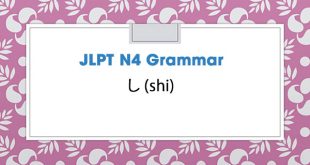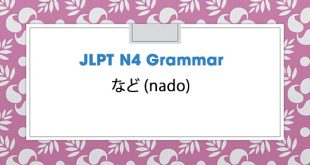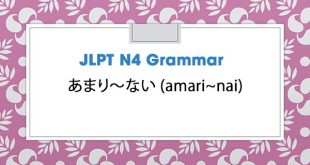ば (ba): if … conditional
Meaning: if… then
Explain:
We use the conditional form to indicate the necessary condition for a certain event to occur. This clause is placed at the beginning of the sentence. If the beginning and the end of the sentence share the same subject, it is not the verb to indicate the intention
A description of the necessary conditions for an event to take place.
Where the speaker wants to express his or her decision in a situation or when the speaker says something.
Example sentences:
1, 春が来れば花が咲く。
Haru ga kureba hanagasaku.
If spring comes, flowers will bloom
2, 10を2で割れば5になる。
10 O 2 de wareba 5 ni naru.
If you divide 10 by 2, you will get 5
3, 年をとれば身体が弱くなる。
Toshi o toreba karada ga yowaku naru.
As you get older, your body becomes weaker.
Nếu cứ vững tin thì ước mơ sẽ thành hiện thực
4, 信じていれば夢はかなうものだ。
Shinjite ireba yume wa kanau monoda.
If you believe, your dreams will come true.
5, このボタンを押せば、ドアが開きます。
kono botan o oseba, doa ga hirakimasu.
If you push this button, the door will open.
Bất cứ ai nếu được khen sẽ vui sướng.
6, 誰でもほめられればうれしい。
Dare demo home rarereba ureshī.
Anyone who is praised will be happy.
7, 台風が近づけば気圧が下がる。
Taifū ga chikadzukeba kiatsu ga sagaru.
If the storm approaches, the atmospheric pressure decreases.
8, 愉快な考え方をすれば、わたしたちは愉快になるだろう。
yukai na kangaekata o sureba, watashitachi wa yukai ni naru darou.
If we think happy thoughts, we will be happy.
Attention:
In the case where the previous and the second part of the sentence have the same subject and verb in both of them using intentional expressions, we don’t use 「~ ば」
 Learn Japanese Free Learn Japanese Free
Learn Japanese Free Learn Japanese Free







